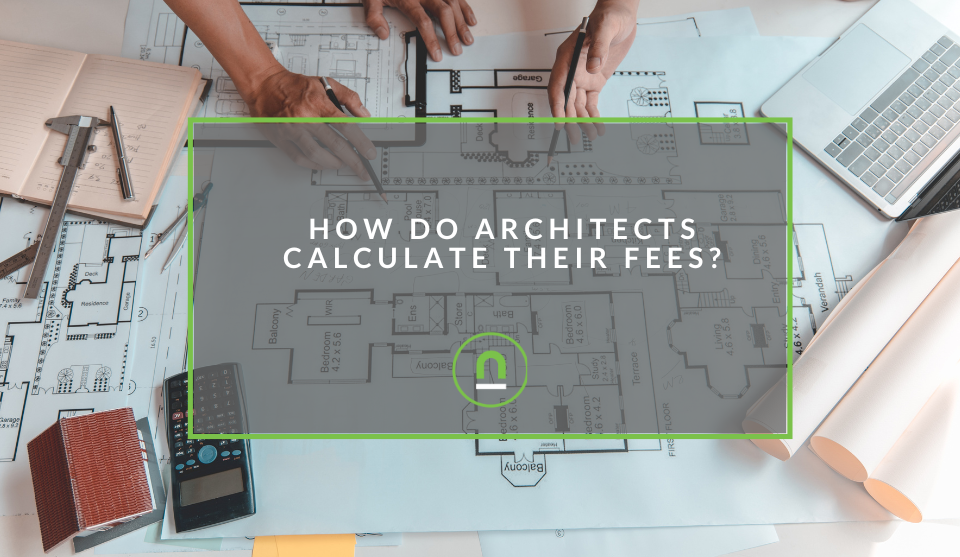Recent posts

Money Talks
The Rise Of Trading Platforms In South Africa
16 December 2025

nichemarket Advice
The South African VAT Threshold Chokehold
05 December 2025

Doctors Orders
The Difference Between SOAP Notes and DAP Notes
02 December 2025

Shopaholics
Lost Mary Vape Flavors List By Durity Distribution
01 December 2025
Popular posts
Extravaganza
Trending Music Hashtags To Get Your Posts Noticed
24 August 2018
Geek Chic
How To Fix iPhone/iPad Only Charging In Certain Positions
05 July 2020
Extravaganza
Trending Wedding Hashtags To Get Your Posts Noticed
18 September 2018
Money Talks
How To Find Coupons & Vouchers Online In South Africa
28 March 2019
How Architects Calculate Their Fees
20 October 2024 | 0 comments | Posted by Che Kohler in Constructive Criticism
One of the most crucial considerations when embarking on a building project is the architect's fees. Understanding how these fees are calculated can help clients with their budgets effectively and appreciate the value of architectural services as well as the costs involved in turning a plan into reality.
Many projects may start out with a rough concept, and once it's moved from ideation to practical costing and design, certain physical limitations start to play a role, as well as cost restraints and access to certain materials.
Modern cities are filled with large construction jobs, so it might seem like the industry has got this down to an exact science, but this couldn't be further from the truth.
The reality is there is no "standard rate", and depending on the size, scope and requirements, the cost of an architect's services can vary dramatically.
Types of Fee Structures
Architects typically use several fee structures, each suited to different project types and client needs.
Common structures include:
Percentage of Construction Cost:
Many architects charge a fee based on a percentage of the total construction cost, usually ranging from 5% to 15%. This method aligns the architect's interests with the project's overall budget.
Hourly Rates:
For smaller projects or consultations, architects may charge hourly rates. This structure is often preferred for clients seeking specific advice without a long-term commitment.
Fixed Fees:
Some architects offer a fixed fee for their services, providing predictability in budgeting. This is common for well-defined projects where the scope is clear.
Retainers:
In ongoing projects, architects might require a retainer fee to ensure their availability and commitment.
Several key factors influence how architects calculate their fees:
- Project Complexity: The complexity of a project significantly impacts fees. Unique designs or complicated systems require more time and expertise, resulting in higher costs. Architects must evaluate design intricacies, site conditions, and technological requirements.
- Location: Geographic location plays a vital role in fee determination. Urban areas with a higher cost of living often see increased fees compared to rural settings. Local market conditions and competition also affect pricing.
- Project Size: Larger projects typically involve more resources and time, influencing the overall fee. However, economies of scale might lead to lower percentages on larger budgets.
- Scope of Services: The breadth of services offered can affect fees. Projects requiring additional services like interior design, landscape architecture, or project management will naturally incur higher costs. Clear communication about expectations can help manage these factors effectively.
- Market Demand: In times of high demand for architectural services, fees can increase. Architects often adjust their pricing based on their workload and the competitive landscape.
Due to the complications involved in calculating fees and the need to reduce human error, cost estimating software has become a popular solution to help capture costs and factor in variations in costs. Using tools like cost estimating software, architects can provide you with a more accurate and transparent breakdown of potential expenses, helping to ensure that your dream home remains within your budget.
Client Relationship
The relationship between the architect and the client can also influence fees. Strong communication and collaboration can lead to more efficient project execution, potentially lowering costs.
An architect's understanding of a client's vision and requirements ensures that the project remains on track and within budget.
Regulatory and Legal Considerations
Local regulations and zoning laws can impact architectural fees. Navigating permits, inspections, and compliance with building codes requires additional time and expertise.
Architects often incorporate these factors into their fee calculations to account for the complexities of regulatory adherence.
Keep your costs in check
Calculating costs for a construction project is never a set science; all one can do is work with the variables available, try to limit the range of one variable cost so as to leave room for changes/errors or unforeseen expenses and delays but not use every possible scenario to price yourself out of the project.
The methods above are merely a guide one can use to understand how architects calculate their fees and provide valuable insight for clients embarking on construction projects.
It's worth noting that you don't have to pick one method and stick to it; rather, you can use them side by side or apply certain methods to certain subsets of the project based on each methodology's strengths.
This can add complications to costs but can help clients better navigate their budgets and expectations by considering project complexity, location, size, scope of services, and market demand.
Ultimately, investing in quality architectural services pays off in the long run, ensuring that projects are aesthetically pleasing, functional, compliant with regulations, and, most importantly, come in at a reasonable cost.
Are you looking to promote your business?
Real estate businesses can create their free business listing on nichemarket. The more information you provide about your business, the easier it will be for your customers to find you online.
Registering with nichemarket is easy; all you will need to do is head over to our sign-up form and follow the instructions. If you require a more detailed guide on how to create your profile or your listing, then we highly recommend you check out the following articles.
Recommended reading
If you enjoyed this post and have time to spare, why not check out these related posts and dive deeper down the rabbit hole that is construction.
- Save Money To Buy A House
- How To Start House Flipping For Profit
- How To Turn Your Home Into A Smart Home
- How To Prepare For A Home Renovation
- Should You Buy or Rent a Condo?
- Tips To Determine The Market Value of Homes
- Best Software To Create 3D Models
- 5 Programs For Creating 3D Architectural Models
Tags: Architect, Construction
You might also like
What Is The Part Time Job WhatsApp Scam?
25 November 2025
Posted by Che Kohler in Alarming
A deep dive into the scheme behind all these random WhatsApp invites or Telegram chats offering you part-time remote work that pays you out instantly...
Read moreThe Rise Of Trading Platforms In South Africa
16 December 2025
Posted by Gabriela Pelayes in Money Talks
Discover how the rise of digital trading platforms in South Africa is reshaping commodity markets, boosting accessibility, efficiency, and the future...
Read more{{comment.sUserName}}
{{comment.iDayLastEdit}} day ago
{{comment.iDayLastEdit}} days ago
 {{blogcategory.sCategoryName}}
{{blogcategory.sCategoryName}}

